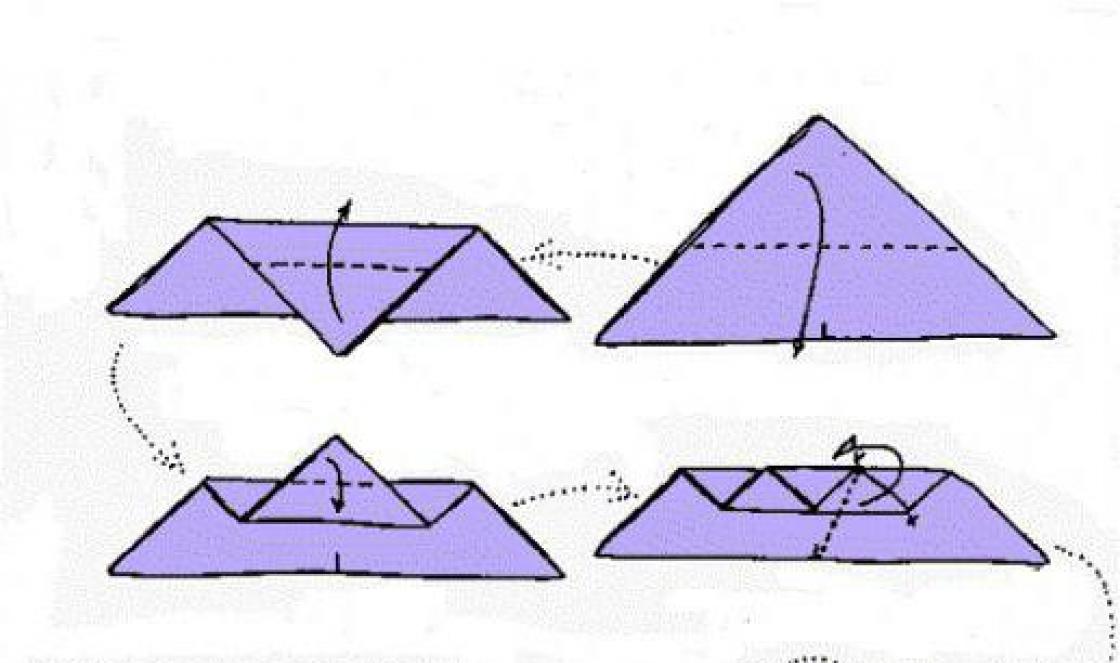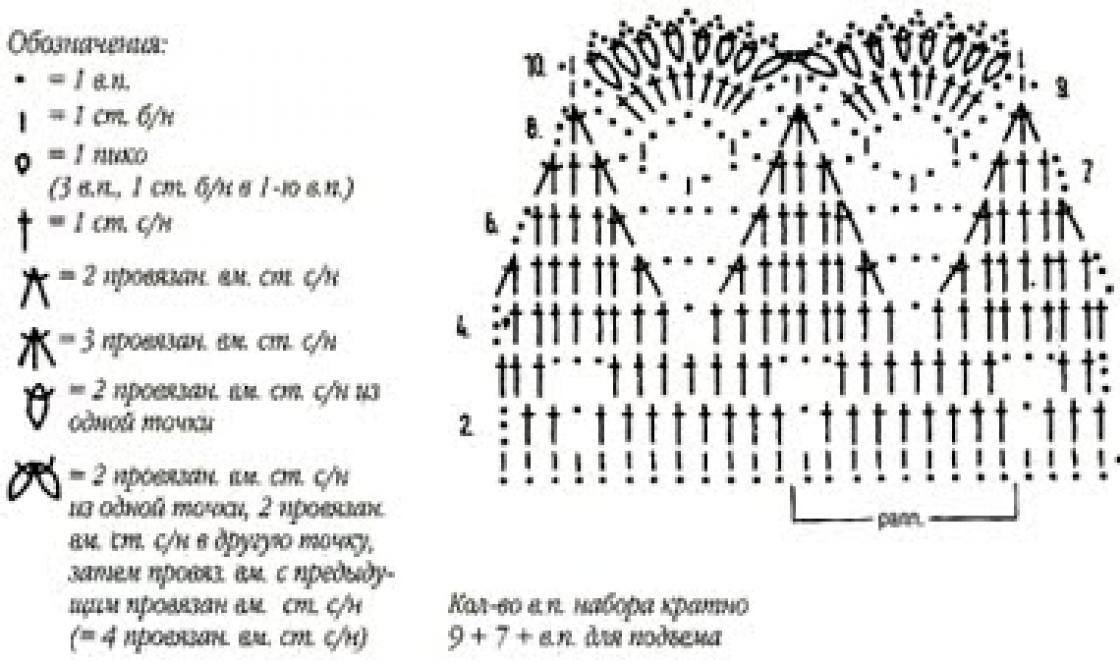The word "ecstasy" comes from the ancient Greek "displacement, admiration, frenzy." In a religious context (original meaning) it was understood as the pinnacle of delight, the highest inspiration. The term itself was used in antiquity by Aristotle, Plotinus, and Plutarch. It was also used in the “New Testament” to describe a change in consciousness, accompanied by enthusiasm and religious frenzy. This state sometimes visited the apostles. For example, Peter, the apostle, was in ecstasy when he received a vision from God.
What does ecstasy mean?
The state involves a person’s consciousness going beyond the givens: mental and material. Painful ecstasy is possible - oppressive passion, intoxication with something, clouding of reason. And, as an alternative, a relieving ecstasy that introduces a person to the “truths of being.”
According to Plotinus, this state presupposes preliminary catharsis (purification). And then the soul is able to rise above the “beingness” of the mind, coming into contact with the “superexistential.” In some branches of mystical and religious teachings, such a state was welcomed and even achieved artificially. However, in late Christianity, religious ecstasy is condemned in favor of quiet humility over the will of God.
Modern interpretation
In the modern context, the religious meaning of the word fades into the background. Poets understand this state as poetic inspiration and delight. Psychologists - as a type of affective disorder. Esotericism - associated with sexual feelings. And less and less attention is paid to the ritual and mystical content.
Wikipedia describes ecstasy as a positively colored affect that entails the highest degree of pleasure, delight, and inspiration. When it occurs, the human mind erases the boundaries between real world and internal experiences, transferring the individual to a weightless state of complete satisfaction.
What can ecstasy be?
The Italian doctor P. Mantegazza in his book “Human Ecstasies” identified several varieties of this condition, namely:
1. Ecstasies of an affective nature. This group included:
- sexual ecstasies that occur during the copulation of a man and a woman;
- altruistic ecstasies that bring satisfaction from self-sacrifice, awareness of necessity and attachments: family, friends and others;
- religious ecstasies that reach their epic heights during spiritual prayers or self-absorption, when the individual merges with God or the Universe.
2.Mental ecstasies divided into:
- creative, bringing satisfaction from the rapture of their ability to speak and present themselves;
- intellectual – the ecstasy of knowing the truth.
3. Aesthetic ecstasies are:
- ecstasy of sensation - euphoria of infinity, feelings of flight;
- visual – pleasure from contemplating beauty, any action, object or phenomenon;
- auditory ecstasy is the pleasure of hearing a sound that immerses you in euphoria.
Physical state during ecstasy
Physiological manifestations of ecstasy can be expressed by the following physical changes:
- decreased breathing rate;
- slowing or speeding up your heartbeat;
- visual and auditory hallucinations.
The state of ecstasy is described in the following stages:
- Lack of thoughts and sensations.
- Touches, smells and sounds are not perceived.
- There are no memories, no images popping up in my head.
Yogis immerse themselves in this state during meditation. It is noted that during this period their pulse and metabolism slow down, and this allows them to remain in this state from several hours to several days, without food and water.


Ecstasy is not an orgasm
Very often, orgasm is called ecstasy, but this is wrong. Because these are completely different concepts.
Orgasm is a strong physiological pleasure obtained due to the uncontrolled contraction and tension of certain muscles of the human body. Although the end result of orgasm is similar to euphoria, since it is characterized by a feeling of pleasure and complete satisfaction. There are different ways to achieve this state, and orgasm lasts only a matter of seconds.
Ecstasy cannot be achieved by irritation of erogenous zones, since it is a consequence of psycho-emotional perception that is not associated with physical arousal.


And a few more words about ecstasy
All of the above can be summarized in a few lines. Ecstasy is a process that occurs in the head and leads to an explosion of positive electrical impulses entitled:
- emotions;
- happiness;
- bliss;
- satisfaction.


All these sensations flow like an uncontrollable fountain, leading a person to ecstasy, the highest point of spiritual pleasure.
(from the Greek extasis - admiration) - a term recorded in ancient literature to designate a special state of consciousness in which the boundaries between the external and the internal are lost. This state is accompanied by a feeling of enthusiasm, intoxication, detachment from reality, and ignoring real external sensations. The delight is so great that the person short time forgets about everything. In terms of the nature of the sensations and the dynamics of the process, it is close to the sphere of sex. Pictures and images pop up in the mind that are usually inaccessible to him. It can be accompanied by both positive emotions (happiness, bliss) and negative ones (fear, horror). Physical activity may be reduced to a state of stupor, or increased to the point of frenzy. IN this state forced speech (glossolalia) is common. For mystics this is a key concept individual development person. Ecstasy symbolizes the fact that a person is only a kind of “vessel” that is filled with cosmic content. According to Plotinus, this is the primary exit from the boundaries of individuality and “fusion” with a beloved being, which is primarily the absolute. This is a state of mind at the level of higher knowledge. It is achieved through the use of certain psychotechnical means (fasting, prayer, inaction, dance), through sex, or develops endogenously. For example, it is typical for alcohol or drug intoxication, also for schizophrenia and some forms of epilepsy.
(Source: Sexological Dictionary)
(from Greek - frenzy, admiration), the highest degree of delight, inspiration, sometimes turning into frenzy. E. may be accompanied by visions, auditory hallucinations, prophecies, etc. It occurs in various spheres of human life, incl. and in the genital area.
(Source: Dictionary of Sexual Terms)
Synonyms:See what “Ecstasy” is in other dictionaries:
- (from the Greek displacement, movement, frenzy, delight), the term is another Greek. philosophy, one of the main concepts of Neoplatonism. In its original meaning, the word E. meant, in particular, the transition from a normal state to an abnormal one (as in ... ... Philosophical Encyclopedia
- (Greek frenzy). Frenzy, an enthusiastic state of spirit, as if separated from the body, so that the subject, in this state, does not notice anything around him; type of effect. Dictionary of foreign words included in the Russian language. Chudinov A.N ... Dictionary of foreign words of the Russian language
ecstasy- oh, well. extase f., gr. A frenziedly excited state; extreme degree of enthusiasm, reaching the point of pain. BAS 1. How all your friends Should be in ecstasy at this change; You know such phenomena between them. 1815. Shakhov's Lesson... ... Historical Dictionary of Gallicisms of the Russian Language
See ardor... Dictionary of Russian synonyms and similar expressions. under. ed. N. Abramova, M.: Russian Dictionaries, 1999. ecstasy, inspiration, fervor; trance, extra class, rapture, ecstasy, exaltation, fascination, admiration,... ... Dictionary of synonyms
ECSTASIS, ecstasy, many. no, husband (from Greek ek from and stasis position) (book). A frenziedly enthusiastic state, an extreme degree of inspiration, reaching the point of pain. “Ecstasy... is that excited state when a person is under the influence... ... Ushakov's Explanatory Dictionary
- (from the Greek έκστασις frenzy, admiration) positively colored affect. The highest degree of delight and inspiration. A term recorded in ancient literature to designate a special state of consciousness in which one gets lost... ... Wikipedia
ecstasy- a state of extreme delight, reaching the point of frenzy. Dictionary of a practical psychologist. M.: AST, Harvest. S. Yu. Golovin. 1998. ecstasy… Great psychological encyclopedia
ecstasy- ECSTASIS, a, m. 1. and in the sign. tale What l. good; what you like. Girl ecstasy. 2. intl. Expresses positive emotion... Dictionary of Russian argot
- (from the Greek ekstasis, frenzy, admiration), the highest degree of delight, inspiration, sometimes on the verge of frenzy... Modern encyclopedia
- (from the Greek ekstasis, frenzy of admiration), the highest degree of delight, inspiration, sometimes on the verge of frenzy... Big Encyclopedic Dictionary
- (from the Greek extasis admiration) a term recorded in ancient literature to designate a special state of consciousness in which the boundaries between external and internal are lost. This state is accompanied by a feeling of enthusiasm... Psychological Dictionary
Books
- Ecstasy, Ryu Murakami. The novel “Ecstasy,” like the scandalous “All Shades of Blue,” is terribly shocking and extremely merciless to public taste and morality. The main character, Miyashita, is not only an avid drug addict, but also...
A person is capable of experiencing a rich range of different feelings. Many emotions familiar from childhood - joy, peace, anger and others - are repeated many times throughout life. But there are also sensations that are unfamiliar to most people or are experienced very rarely, for example, ecstasy. can a state bring into a person’s life? We will try to figure this out in this article.
The meaning of "ecstasy"
If we consider the direct translation of this term from Greek, it will sound like “a displacement or exit from a habitual state.” Most people associate this word with experiences of an erotic or religious nature. But a similar state is also very often experienced by people in connection with mystical experiences and accompanies heroic deeds. Ecstasy... What must happen for a person to experience it, and why do many people strive so much for these sensations?
The desire to experience such a state arises due to the fact that most people associate this concept with positive emotions. But the state of ecstasy can also be caused by negative experiences. Along with the ecstasy of delight there is also the ecstasy of self-destruction and despair, humiliation and rage. What unites positive and negative experiences is only the scale of the feelings experienced at such a moment. This is the main characteristic of the altered state we are considering.

Little known facts
It is curious that it is impossible to bring to ecstasy by force; it is necessary that the person is ready to experience such strong emotions. This state is characterized by blurring the boundaries between oneself and the surrounding space. Many people confuse ecstasy with orgasm, which can only occur on a physiological level, but these are completely different sensations. It is impossible for an untrained person to perform a complex gymnastic trick, and it is also pointless to artificially induce such feelings in oneself.
There is an opinion that ecstatic reactions are very close to the borderline ones, beyond which deviations from the norm begin. In this regard, people often look for any signs that characterize ecstasy. What can such a condition change in a person? First of all - behavior! In the specialized literature there are various descriptions of this condition, which is accompanied by actions that are atypical for most people. Examples include the activity of fans at concerts or the dances of shamans.
Obviously, there is no need to artificially try to evoke certain emotions in yourself, because such experiments can go too far. Humanity already has a sad example of using harmful substances in order to achieve an altered state - drug addiction and alcoholism. Our body is much wiser than us, and in its natural state allows us to experience only those sensations that it is able to endure without damage to the psyche and health.

Conclusion
You should not try to experience ecstasy by any means, much less with help. What such a condition can cause in a person is well known to workers in psychiatric hospitals. Very often there is a loss of the reality of space and time, as well as uncontrollable physical actions and physiological processes.
Unfortunately, the ideology of many destructive organizations is built on people’s desire to experience new feelings and emotions. The main thing is to remember that only what comes naturally, without disturbing the harmony of the worldview, is true.
It is difficult to describe that state of euphoria and happiness on the verge of frenzy, which is understood by the word “ecstasy”. What an ecstatic state is, only people who have experienced it at least once know. Somerset Maugham said about this feeling: “The beautiful is ecstasy: it is as simple as hunger. In essence, you can’t tell anything about him. It’s like the scent of a rose: you can smell it, that’s all.”
Ecstasy. What is an ecstatic state
Translated from Greek, ekstasis means “frenzy, admiration.” This is the highest delight, a change in human consciousness, a loss of the sense of reality and time. In a sense, it's like a trance. There are several interpretations of this word. Thus, religious ecstasy is mentioned very often in literature. What is frenzy and euphoria from long prayers, however, few people know today. Another similar emotional state is attributed to boundless inspiration and delight from visual pleasure, that is, intoxication with beauty.
Modern people, as a rule, perceive the word “ecstasy” in only one meaning - the highest point of a sensual surge at the moment of sexual intimacy with a partner.
Ecstasy and orgasm are not the same thing
Some sources mistakenly use orgasm and ecstasy as synonyms. What is an orgasm really? This is a purely physiological, although very strong, pleasure, which is accompanied by involuntary spasms of some pelvic muscles. Orgasm is characterized by a feeling of pleasure and satisfaction. Most often, this state is achieved by stimulating the erogenous zones; much less often, orgasm occurs spontaneously, for example, in a dream.
Ecstatic pleasure is beyond the limits of physical arousal, at the level of psycho-emotional perception. Simply put, ecstasy happens in the head. This is a kind of explosion of accumulated positive emotions, happiness flowing like an uncontrollable fountain. Orgasm is not necessarily accompanied by ecstasy; moreover, this is a rather rare occurrence. At the same time, a person is able to experience an ecstatic surge even without sexual intercourse itself. Simply the proximity or touch of a loved one can cause such a feeling.
Female ecstasy
It is a well-known fact that for the fair sex the path to orgasm is much longer and more difficult than for men. If male satisfaction is the usual logical outcome of sexual intimacy, then for a girl it is more like a game of roulette, where luck is not always present. Moreover, a huge number of women are not at all familiar with these wonderful sensations. Such ladies most often imitate orgasm, and even ecstasy, in order to stroke the ego of their loved one.
By the way, if you ask women who receive real, genuine physical pleasure from sex about what ecstasy is, they will talk about it much more than men. The fact is that the psycho-emotional perception of the weaker sex is much subtler and more sensitive. Ladies are capable of receiving true delight even simply from the presence of a loved one, and intimacy with him can lift them above reality. Thus, ecstasy can be familiar even to women who have not known orgasm.

The Sure Path to Ecstasy
For love pleasures to bring real pleasure and delight, it is very important that both partners strive for this. There can be no talk here of any working together, this path should be based on a mutual desire to make the partner and, of course, yourself happy. There is no strict instruction on “What is ecstasy and how to get it.” Moreover, usually such moments come completely unexpectedly, without any preparation. However, some reasonable recommendations can still be found.

A woman should try to master the art of sensory concentration. Completely abstracting from external fuss and the desire to please your partner, you need to be only here and now, listening to your feelings. Using this tactic, over and over again the girl gets more and more pleasure, gradually approaching her cherished goal.
The stronger sex should not forget how important the environment in which the love affair takes place is for the partner. A bedroom decorated with flowers and candles will certainly create a positive effect and help the lady get maximum emotions. It is also important for a woman to realize that she is beautiful and desirable. A passionate look from her partner and a gentle whisper of compliments - this is what she is waiting for at this moment.
Tantric yoga
It also wouldn't hurt to use literature. Tantric yoga is a direction that studies sexual ecstasy and helps to achieve it. In the manuals you can find a lot of interesting information: what ecstasy is, photos of special poses, ways of psychological attitude. According to this teaching, through the use of certain techniques, male and female sexual energies can be released beyond the limits of physiology and reunite, leading to supreme bliss.

Despite all sorts of scientific theories, only true love can create those unique energy vibrations that simultaneously embrace the body and soul.





